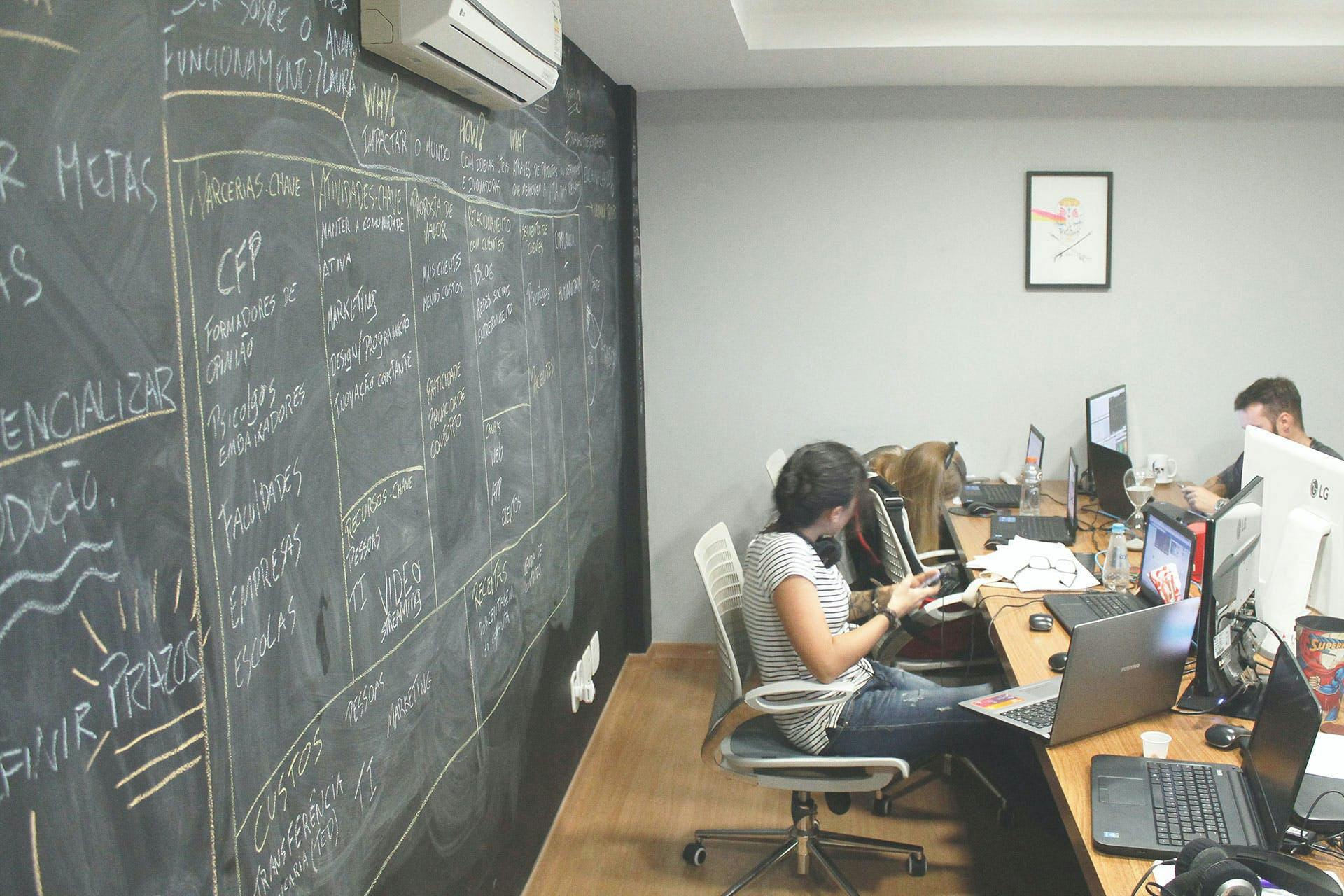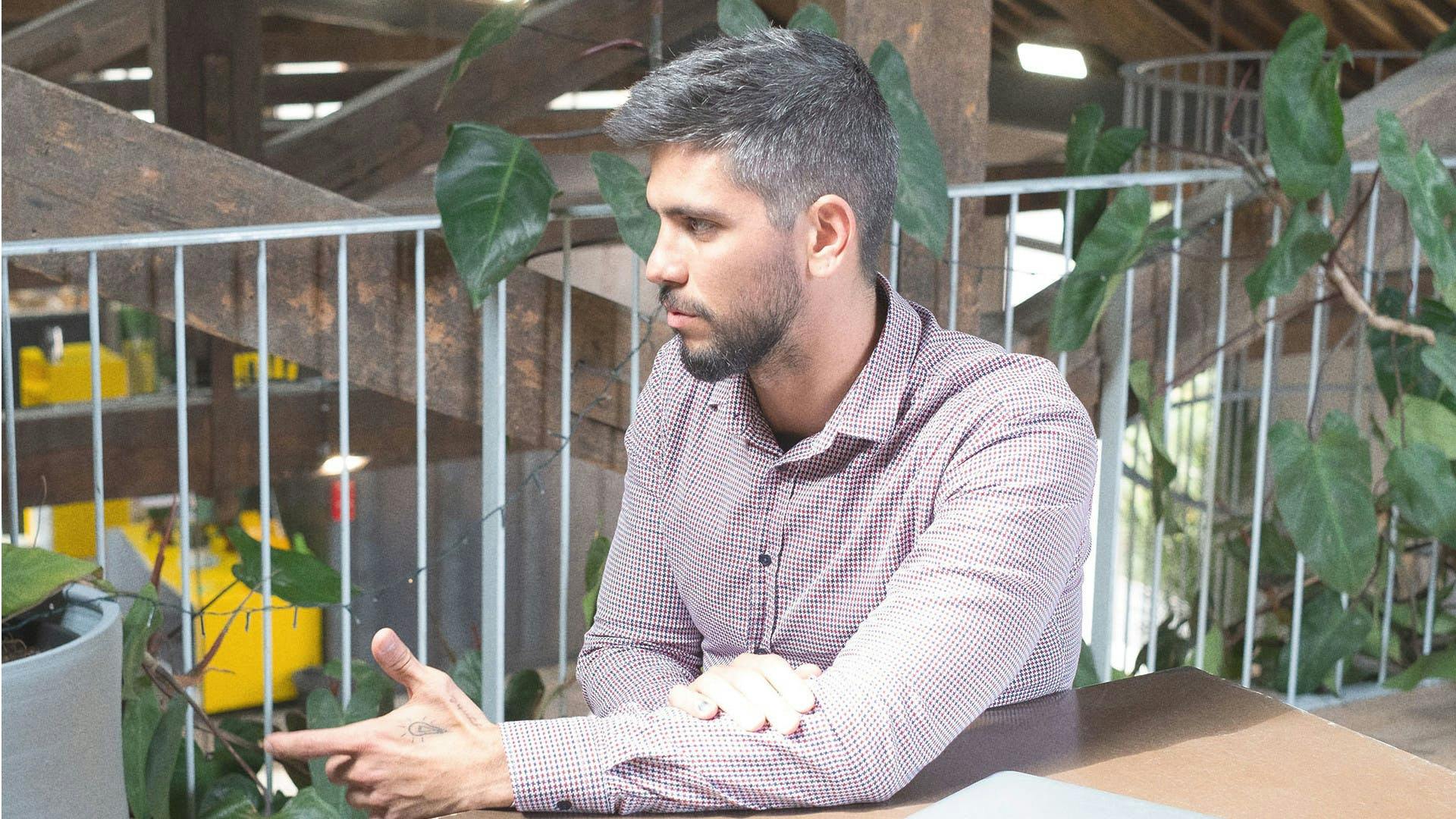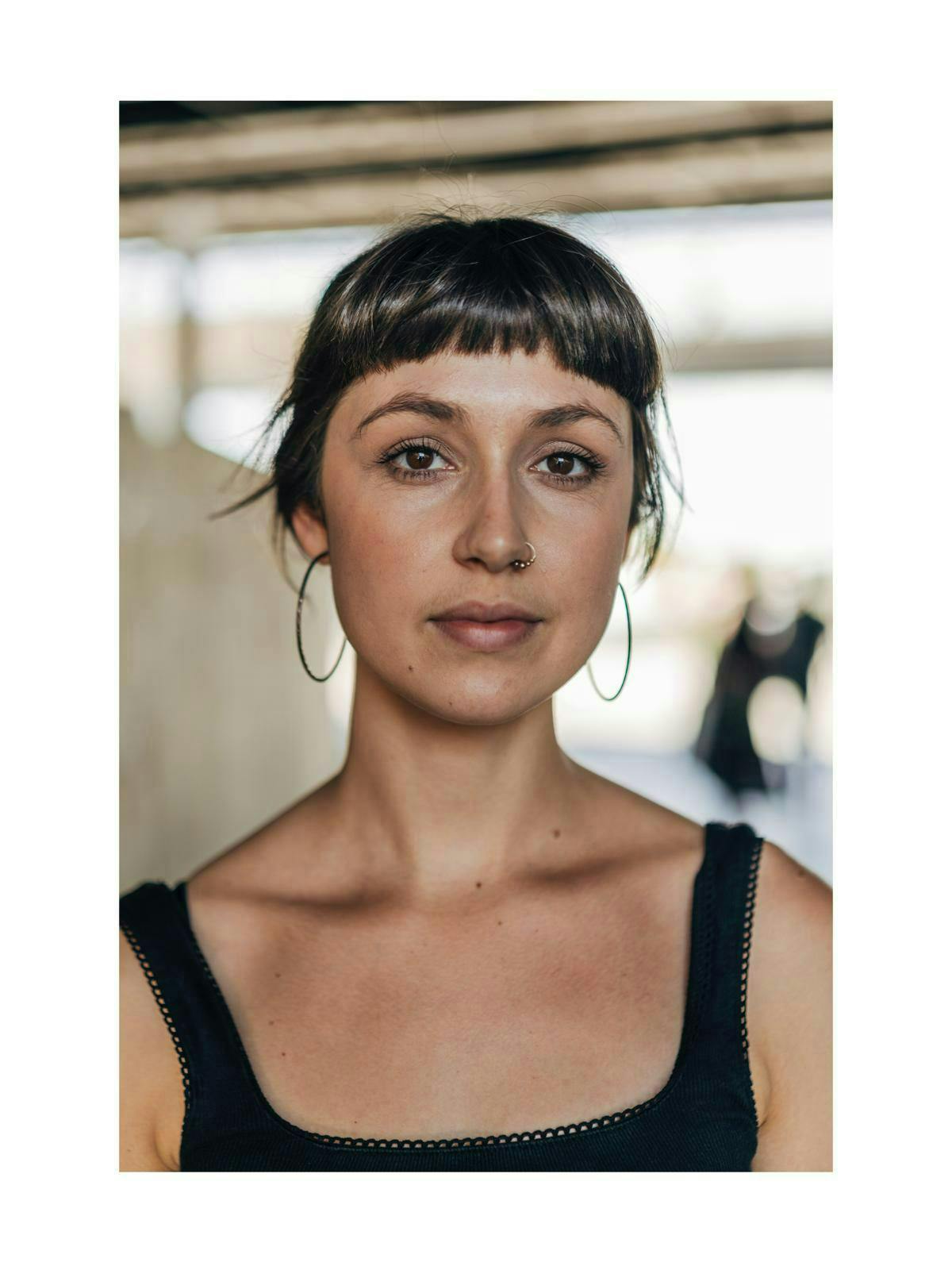"Not the best business model": Lessons learned as an impact startup founder
n impact startup is first and foremost a business, says entrepreneur and Startup Guide team member, Thiago Blanco. Founders should consider building a sustainable business model and selecting the right team members before figuring out how to make a difference in the world.
After completing his university degree in business administration in Rio de Janeiro in 2013, Thiago set up two companies, both of which are no longer in operation.
His second startup was called Riso. The company was designed to help people suffering from depression and anxiety to access professional help over the internet – but it disbanded after only six months.
Three years on, Thiago is now based in Lisbon. He’s one of Startup Guide’s newest team members and leads the marketing team.
Here he discusses the trials of cofounding an impact startup, the things he would have done differently and his vision for how businesses can make a difference in the world.
How did you become interested in founding your own impact startup?
To be honest, I’d always been a misfit in some way. I could never imagine myself working for a big corporate, or having a “normal” desk job. At the start of my career, I had a lot of big ideas that I wanted to pursue, so I started a lot of my own projects.
When I left university in 2013, I founded my own company which was a marketplace that helped people find freelance work. That never worked out. I was young and I made a lot of stupid decisions, but I learned a lot.
After that, I began to think about what I wanted to do next. I always knew that I wanted to help people in some way. I wanted my ideas to become something that could change people’s lives.
After my first company failed, I started working for a consultancy firm. This was where I met the cofounders for my next company, which focused on connecting people suffering from mental health conditions to professional psychologists via an online platform.
What sparked your interest in founding this kind of startup?
A friend of mine suffered from depression to a pretty debilitating degree and I myself suffer from anxiety. I’d always thought that these conditions don’t get enough attention in the world. A lot of people don’t understand how difficult it is, and some struggle to be compassionate.
I wanted my ideas to become something that could change people’s lives.
Based on my own experience and that of my friend, I started to ask myself why people don’t seek help and attend therapy sessions. Often, it’s just a problem with access. I began to think about ways that I could make it easier for people to get the help that they need.
While I was researching into my idea, I saw a company in the US that created an online platform connecting people who needed legal advice with a lawyer. All they had to do was arrange a video session to get the help they were looking for. I then realized that I could create the same platform, but with psychologists.
Based on this concept, I cofounded the company, called Risa, alongside the two people I had met through a contact at the consultancy firm. One was a designer and one was a growth hacker. My role was to develop our business model and communication strategy. With the little money that we had, we then hired a developer to help us create the first version of the platform.

Riso's previous office space. Photo: Riso.
Did you have any major success with the project?
We did have some successes. In the first month of beta testing, we had over a thousand professional therapists sign up. The problem was reaching the people who actually needed help.
For the psychologists, the business model was good. They could get paid for offering their services from the comfort of their own homes. But for the people suffering from depression, anxiety or other mental health conditions, it was harder to convince them to open up to and trust a stranger over the internet.
Six months into the project, I was still trying to figure out who our client was and what the best way was to approach them. I wanted to try and destigmatize mental health and make people understand that taking care of your wellbeing is extremely important. However, the business failed before I could truly understand all of these things.
In the end, the psychologists were happy, but I couldn’t reach the people I really wanted to who were, ultimately, the people who were suffering. And because of that, I couldn’t generate the impact I truly believed was necessary in the world.
Why did the project fail before it could gain traction?
In hindsight, we had a great idea but we didn’t have the best business model. Our service was based on charging the user per minute for the time of the psychologist, which wasn’t the most pleasant way of doing it.
As a person who suffers from anxiety myself, I knew that users would feel uncomfortable seeing the price going up minute by minute while they were trying to talk about their issues.
We had a great idea but we didn’t have the best business model.
Also, I think myself and my cofounders just had different visions on how the company should be run. It’s possible that I got a bit too emotionally invested in the business to the point where I forgot that we actually needed money to sustain ourselves. I made a lot of bad decisions which had a negative impact on our progress.
Eventually, we just disagreed on too many points and resources were tight so we decided to end the project.
What aspects of the project would you have done differently?
I definitely would have been more careful about the people I chose to work with. Not having the right partners can single-handedly ruin a business.
[ Read also: What to watch out for when founding with friends ]
I would have also put more effort into developing a clear vision for the company and outlining each person’s specific role. When things get complicated and you have differing opinions, you need to know who is going to make the decisions.
Do you have any tips for entrepreneurs who are trying to make an impact?
Don’t be blinded by the vision. In an impact startup, you need people to be passionate about what you are trying to achieve, but you also need people that know how to make money and sustain the business.
Do you have a vision for how businesses can make an impact in the world?
For people founding impact companies, making money should always be a priority. Ultimately, you need to make enough profit to keep the business going.
With a good amount of finance, you can hire the best people who have the right expertise, you can create the best products that will sell and with the revenue gained from that, you can help more people.
[ Read also: Now is the time to build an impact startup in the Nordics ]
Main photo by Startup Guide.

